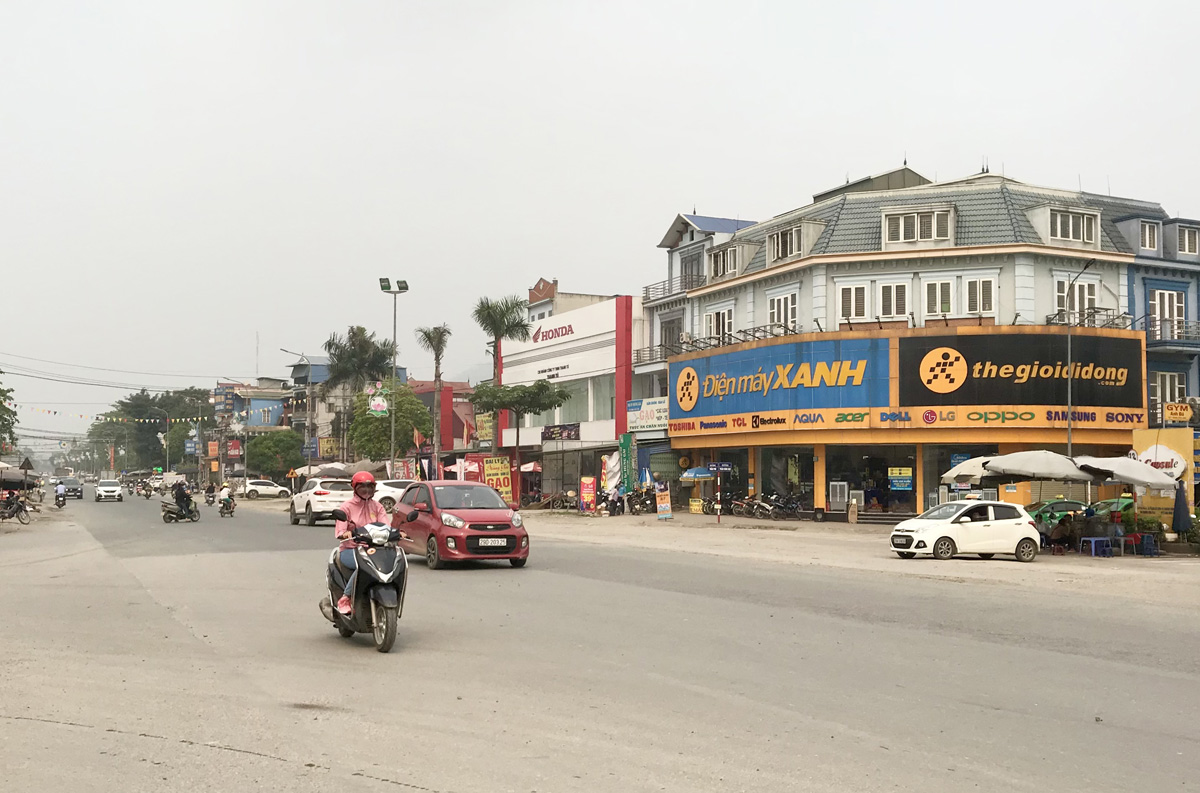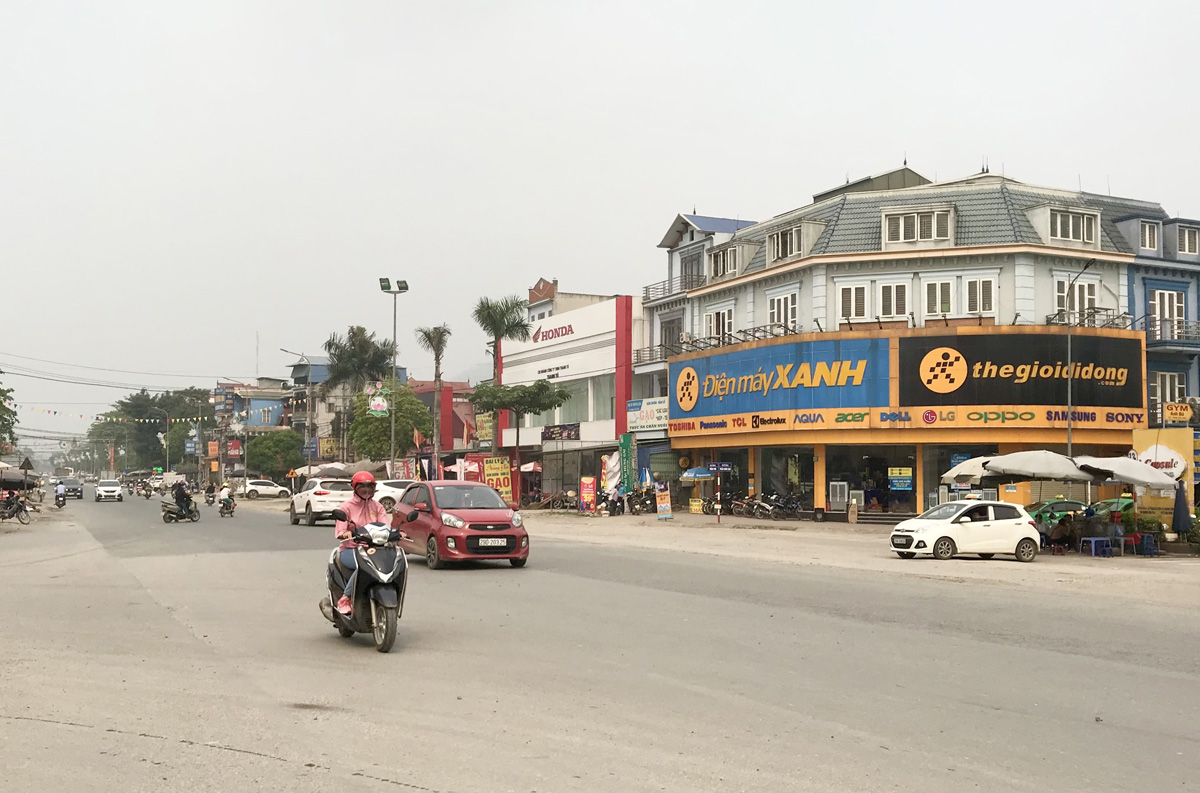
(HBO) – Luong Son township is one of the standout localities in Luong Son district in economic development thanks to its large population, wide area, convenient transport system, and huge number of enterprises. Therefore, the local Party Committee and authorities have seen directing and leading the implementation of economic development tasks as a focus over the past time.

Luong Son township has developed synchronous and modern infrastructure.
Last year, local criteria on economic structure surpassed the targets set in the town’s Resolution, with income per capita topping 63 million VND (over 2,700 USD) per year, exceeding the plan by 26 percent, and budget collection surpassing 32.4 percent.
To date, the township is branching out livestock and poultry farming, fruit tree cultivation on an area of over 45 hectares, and aquafarming on more than 8.6 hectares.
Being the political-economic hub of the district, Luong Son township has worked to develop trade-service sector valued at more than 480 billion VND, and industry-handicraft sector worth 340 billion VND.
Regarding infrastructure, the township has concreted all of the local roads, meeting travel demand of the local residents and socio-economic development. In the first quarter of this year, the locality upgraded inter-field roads and canals, while encouraging locals to plant more than 1,500 trees.
According to Hoang Viet Hai, Secretary of the Luong Son township Party Committee, the local Party Committee and People’s Committee have promoted democracy at grassroots level, and worked to ensure transparency in collection of public opinions on the township’s economic development plan.
In the coming time, the Party Committee will continue enhancing communications and encouraging locals to well perform criteria on building civilised urban areas, promote IT application in the locality, as well as further develop trade and services./.
In the spirit of "Party members go first, the people follow”, all households of Party members in the Doan Ket sub-region in Da Bac town, Da Bac district, voluntarily removed gates and fences, and donated land when the road expansion project passed through their properties. Inspired by their example, 68 households in the sub-region quickly followed suit, contributing over 1,400 sq.m of residential and perennial cropland to widen the main road through the residential area. The exemplary role of Party members in Doan Ket stands as a shining example of studying and following President Ho Chi Minh’s thought, morality, and lifestyle.
The Hoa Binh provincial People's Committee held a monthly meeting on May 29 to assess the implementation of socio-economic development tasks in the first six months of 2025, the progress of key projects, and some other important issues.
During his lifetime, President Ho Chi Minh always expressed his deep affection and special concern for children and youth. He once emphasized: "Caring for and educating children well is the responsibility of the entire Party and the entire people”; "First of all, the family (i.e. grandparents, parents, siblings) must do this job well”. "the Party Committees…, the Children’s Committee, the Youth Union, the education sector, and all related organizations must have specific plans to ensure children grow healthier and more progressive”. His teachings has been remaining valuable and serving as the guiding principles in the work of protecting, caring for, and educating children. In line with this ideology, Hoa Binh Province has continuously been prioritizing and investing resources in the well-being of children in recent years.
Mr. Nguyen Phi Long, the alternate Member of the Party Central Committee and Secretary of the Provincial Party Committee chaired the meeting of the Standing Committee of the Provincial Party Committee to provide opinions on several investment projects within the province. There was the attendance of Ms. Bui Thi Minh, the Permanent Deputy Secretary of the Provincial Party Committee and Chairwoman of the Provincial People’s Council; Mr. Bui Đuc Hinh, the Deputy Secretary of the Provincial Party Committee and Chairman of the Provincial People’s Committee and other members of the Standing Committee; the leaders from other departments, agencies, and some localities.
The Standing Board of the Vietnam Fatherland Front (VFF) Committee of Hoa Binh province held a meeting on May 28 to honour outstanding village elders, village heads, and reputable individuals from local ethnic minority and religious communities.
In mid-May, the provincial Museum organised an exhibition named "Duoi la co Dang Cong san Viet Nam quang vinh” (Under the flag of the glorious Communist Party of Vietnam). This meaningful activity took place in the joyful atmosphere to celebrate the country's major holidays and the Party congresses at all levels for the 2025-2030 term, towards the 14th National Party Congress.



